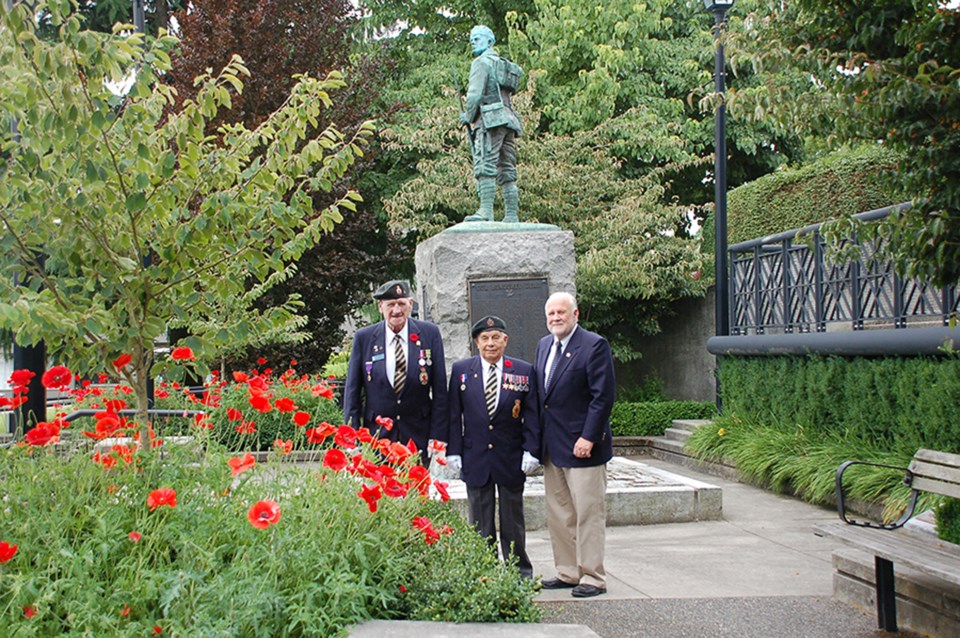The City of New Westminster has planted 100 poppies at city hall to mark the centennial of the First World War.
The poppies, which have been planted at the cenotaph at New Westminster City Hall, are intended to pay tribute to the brave men and women who fought in the Great War and remind us of their sacrifice. The city joins other municipalities across the country in commemorating this historic anniversary with the planting of these flowers of remembrance.
“We are proud of and grateful to the men and women who served during World War 1, as well as to all members of the Canadian Armed Forces who have served in protecting the freedoms we enjoy as Canadians,” Mayor Wayne Wright said in a press release. “The planting of the poppies is a wonderful idea and great way to honour our veterans.”
In 1915, Canadian Lt.-Col. John McCrae was inspired to write the poem In Flanders Fields on the sighting of poppies growing on the burial grounds of soldiers who died in action. Since then, poppies have come to represent a symbol of remembrance to the fallen, and both gratitude and hope for veterans and survivors of war.
The cenotaph, located in front of New Westminster City Hall, is the site of a wreath-laying ceremony and two minutes of silence during the city’s annual Remembrance Day ceremony.



